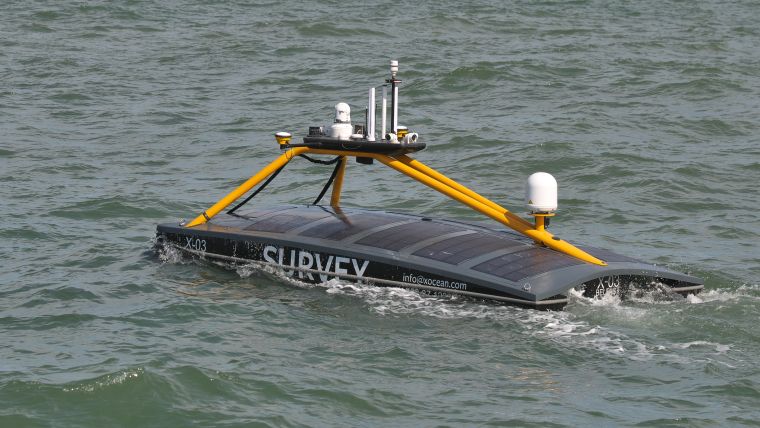UKHO and XOCEAN team up for uncrewed seabed survey
Marine data provider XOCEAN recently deployed five uncrewed surface vessels (USVs) near the Isles of Scilly to collect bathymetric data on behalf of the UK Hydrographic Office (UKHO). The USVs scanned the seabed, identifying features such as depth, habitats, ridges, boulders and shipwrecks. This marked the UKHO’s inaugural use of an external organization for seabed data collection.
During the ADMIRALTY event at the London International Shipping Week 2023, discussions centred around the safety implications of autonomous technology for maritime navigation. As ships progress towards full autonomy, traditional methods may become obsolete, necessitating the development of machine-readable navigational solutions.
Data standards
The UKHO and the Maritime Autonomous Surface Ships (MASS) community are actively exploring solutions using the S-100 data standard. High-resolution gridded bathymetry, integrating S-102 data, significantly enhances navigational accuracy. The UKHO previously supported the Mayflower Autonomous Ship project, where S-100 data was successfully tested on an autonomous vessel, showcasing the pivotal role of AI-powered cameras and sensors.
Digital twin technology, a virtual representation of physical settings, proves instrumental in aiding maritime navigation. The UKHO’s digital twins simulate scenarios for both crewed and uncrewed vessels, fostering innovation and enabling the testing of new technologies.
The future of uncrewed ships necessitates international collaboration, with the UKHO leading the IHO’s MASS project team. This team identifies navigational needs, engages in discussions about hydrographic standards, and ensures that S-100 data standards cater to the requirements of both crewed and uncrewed vessels.
Each research project brings us closer to unlocking the potential of self-navigating vessels, reinforcing our commitment to supporting safe navigation for the autonomous vessels of tomorrow.
For more information, have a look at the UKHO blog.















